Where to Find & Sell Meteorites: Space Rocks Worth More Than Gold!

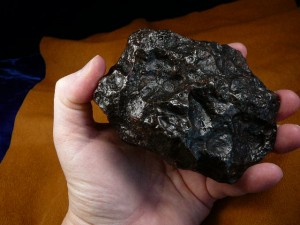 Although this website usually focuses on how to find gold, there are plenty of amateur prospecting enthusiasts who also hunt for meteorites in their spare time. And in many cases, these rock hounds end up making more money by selling meteor fragments than they ever do with gold flakes or nuggets. In fact, finding and selling meteorites can be even easier than prospecting for gold.
Although this website usually focuses on how to find gold, there are plenty of amateur prospecting enthusiasts who also hunt for meteorites in their spare time. And in many cases, these rock hounds end up making more money by selling meteor fragments than they ever do with gold flakes or nuggets. In fact, finding and selling meteorites can be even easier than prospecting for gold.
All of the media attention on the huge meteor that recently crashed in Russia might have increased awareness of asteroids among the general public, but the truth is that lots of smaller space rocks enter Earth’s atmosphere every day. While the majority of this debris from space is too small to reach the ground and burns up in our atmosphere, plenty of meteorite fragments end up reaching the ground. In fact, tens of thousands of asteroid chunks have been found, collected and sold by meteorite hunters and dealers across the world . . . and plenty more are still waiting to be discovered.
So, how much are meteorites worth? Check this out: some of them, depending on how rare they are, can sell for as high as $1,000 per gram. That kind of cash should entice even the most die-hard prospector to hang up the gold pan and start looking for some space rocks. Here are answers to the most important questions about hunting for meteorites.
Do I Need a Metal Detector to Find Meteorites?
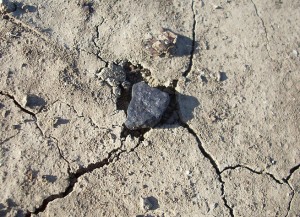 No, but a good metal detector can come in handy for some kinds of meteorite hunting. Remember, there are several different types of meteorites, and not all of them are metallic. Most meteorites do contain iron or nickle in some small amount, so a good metal detector can help you find them.
No, but a good metal detector can come in handy for some kinds of meteorite hunting. Remember, there are several different types of meteorites, and not all of them are metallic. Most meteorites do contain iron or nickle in some small amount, so a good metal detector can help you find them.
Some of the most valuable meteorites, however, don’t contain any metal, such as Martian (Mars) meteorites and lunar (moon) meteorites. The only way to find these is by learning what they look like and carefully searching for them on the surface of the ground. In fact, some of the most successful meteorite hunters don’t use metal detectors at all, because they’ve gotten so good at spotting space rocks among other debris.
Where Am I Allowed to Look for Meteorites?
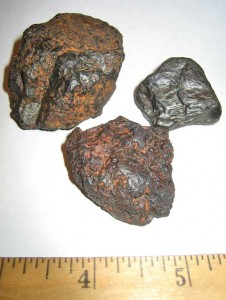 Just because you find a meteorite somewhere doesn’t mean that it’s legal for you to keep it or sell it. Obviously, you can’t take meteorites off of someone’s privately-owned land unless you have permission to do so. And while there are plenty of meteorites to be found in national parks, it’s technically not legal for you to remove them or sell them (and no one wants to be on the bad side of the Federal Government).
Just because you find a meteorite somewhere doesn’t mean that it’s legal for you to keep it or sell it. Obviously, you can’t take meteorites off of someone’s privately-owned land unless you have permission to do so. And while there are plenty of meteorites to be found in national parks, it’s technically not legal for you to remove them or sell them (and no one wants to be on the bad side of the Federal Government).
It’s usually safe to hunt for meteorites on public lands across the United States. Most Bureau of Land Management offices won’t have a problem with you removing meteorites from the land that they manage, although a few offices classify space rocks as government-owned artifacts. Just remember: technically, meteorites belong to whoever owns the land that you find them on, whether it’s an individual or a government entity.
What Are the Best Places to Find Meteorites in the United States?
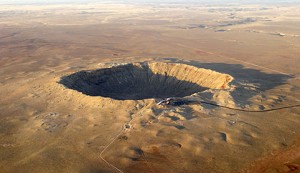 Keep in mind that meteors aren’t attracted to any particular kind of geography . . . gravity is the only influence that pulls them to the ground, so they fall in equal amounts all across the globe. The key is to narrow down your search to places where you’re most likely to see them on the ground.
Keep in mind that meteors aren’t attracted to any particular kind of geography . . . gravity is the only influence that pulls them to the ground, so they fall in equal amounts all across the globe. The key is to narrow down your search to places where you’re most likely to see them on the ground.
Meteorites are usually darker in color, so places where the ground and natural rocks are lighter-colored tend to be great, since the former asteroids will stand out against the background. Flat desert areas and ice-covered geographies are great for meteorite hunting. If you’re searching in the desert, try visiting a dry lake bed. Many dry lakes have been there for thousands of years, are great places to find fallen meteors.
Some of the more popular meteorite hunting locations are called “strewn fields”. These locations are geographic areas where a single large meteor broke up, scattering hundreds or thousands of smaller meteorite fragments across a large swath of ground. Some of the most well-known strewn fields in the U.S. can be found in Arizona, New Mexico and other western states.
Okay, I Found a Meteorite. Where Do I Sell It?
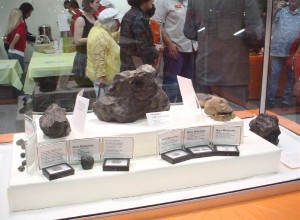 Luckily, finding a meteorite is the hard part. Locating a dealer who can tell you how much it’s worth, and who might be interested in buying it from you, is much easier.
Luckily, finding a meteorite is the hard part. Locating a dealer who can tell you how much it’s worth, and who might be interested in buying it from you, is much easier.
Meteorites are bought and sold in many different venues in the United States. There are geology and rock shows where you can haggle in person, of course, but many meteorites are now sold over the Internet. Dozens of reputable meteorite dealers have their own websites, and some even buy and sell space rocks on sites like eBay. A website called “The Meteorite Exchange” also has a great collection of links to meteorite dealers, clubs, and other information.

